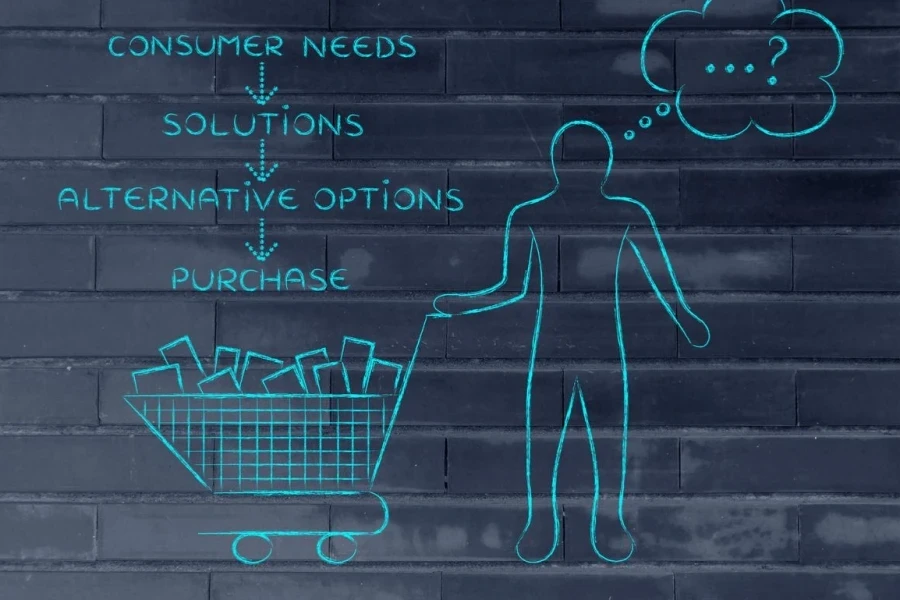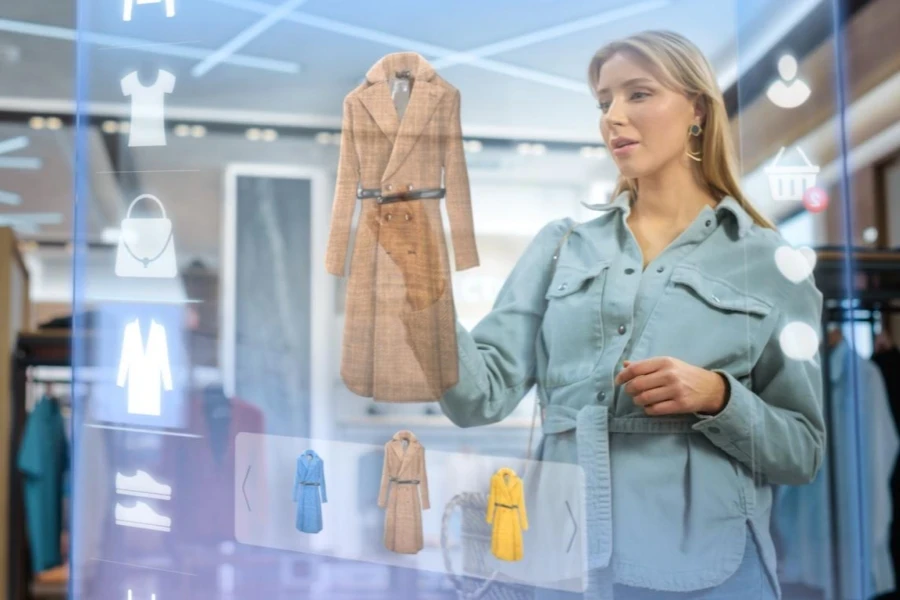The millennial generation, often stereotyped for its love of avocado toast and Instagrammable moments, is quietly orchestrating a seismic shift in global consumer behavior. Far from the impulsive shoppers legacy brands once relied on, millennials have pioneered a new era of Consumer Rationalism—a hybrid philosophy merging data-driven pragmatism with uncompromising ethical standards. Let’s dissect this revolution through four paradigm shifts rewriting the rules of engagement.
Table of Contents
1. The Death of Impulse Buying: When Algorithms Dictate Aisles
2. Stores as Embodied Manifestos: The Rise of 4D Storytelling
3. The Algorithm of Ethics: Quantifying Morality
4. Loyalty in the Age of Ephemerality: Circularity’s Paradox
Conclusion: The Rationalist’s Paradox

1. The Death of Impulse Buying: When Algorithms Dictate Aisles
Millennials don’t just shop—they conduct forensic audits. Consider Glossier’s Ingredient Transparency Engine, launched in 2023. Scan any product in-store, and an AR overlay reveals real-time sourcing maps: shea butter from Ghanaian cooperatives (fair-trade certified), hyaluronic acid fermentation labs in Helsinki (carbon-neutral since 2021). This isn’t marketing fluff; it’s a generation demanding biochemical accountability.
The numbers prove it:
- 79% of millennials cross-check sustainability claims via third-party apps like Good On You before purchasing (Forbes 2024).
- Retailers using blockchain for supply chain visibility saw 34% higher millennial loyalty (IBM Food Trust Study).
Yet, this rationality isn’t anti-indulgence. Look at DTC wine startup Avaline’s “Clean-Crafted” campaign. By disclosing residual sugar levels (down to 0.1g/mL) and vegan filtration methods, they captured 22% of the U.S. millennial wine market within 18 months. As CEO Bianca Miraglia notes: “Transparency isn’t a cost center—it’s the ultimate competitive moat.”

2. Stores as Embodied Manifestos: The Rise of 4D Storytelling
While e-commerce booms, millennials are resurrecting brick-and-mortar as ideological theaters. Take Ralph Lauren’s NYC Coffee Shop—no ordinary café. Every ceramic cup ($95) comes with a QR code linking to the artisan’s studio tour in Portugal. The espresso machine? A restored 1967 Faema E61, symbolizing “slow tech” values. Result: 68% of visitors bought apparel after lingering over lattes.
This isn’t anecdotal. Nike’s Shanghai House of Innovation redefined retail spaces as R&D hubs:
- AR treadmills analyze gait to recommend shoe models.
- A “Sustainable Materials Library” lets customers touch recycled ocean plastics woven into Flyknit.
Post-launch, the store’s membership app usage spiked 210%, proving physical spaces can drive digital engagement.

Retail anthropologist Dr. Emily Chang explains: “To millennials, stores are constitutional documents—they judge brands by how spaces embody (or betray) stated values.”
3. The Algorithm of Ethics: Quantifying Morality
Millennials have weaponized data to create what MIT researchers call Moral Unit Economics—a framework assigning numerical value to ethics. Patagonia’s Carbon Footprint Labeling, rolled out globally in 2023, epitomizes this shift. Each product now displays:
- CO2e (Carbon Dioxide Equivalent): 5.2kg for a classic Retro-X jacket.
- Water Saved vs. Virgin Materials: 1,200 liters for a recycled down vest.
The impact? A 2024 Yale study found that labels influenced 61% of millennial purchases, even at 15-20% price premiums. Competitors face existential math: H&M’s failure to disclose polyester microfiber pollution led to a 19% sales dip among under-35 shoppers last quarter.
Tech is turbocharging this accountability. Allbirds’ Chrome Extension Carbon Calculator automatically assesses the emissions of any online cart. If Zara’s dress exceeds the user’s weekly “carbon budget,” it suggests alternatives like Reformation. Over 1.3 million downloads in six months signal a burgeoning eco-audit culture.

4. Loyalty in the Age of Ephemerality: Circularity’s Paradox
Millennials are dismantling ownership—yet demanding deeper brand relationships. Levi’s SecondHand program with blockchain authentication masterfully navigates this paradox:
- Resold jeans carry digital IDs recording ownership history.
- Sellers earn “LVC Tokens” redeemable for VIP experiences (e.g., custom distressing workshops).
Since 2023, SecondHand users show 3.2x higher annual spend than regular customers. As CMO Jen Sey observes: “They’re not buying jeans—they’re investing in a circular ecosystem where every transaction strengthens community ties.”
Meanwhile, luxury rental platform HURR’s “Wardrobe Wealth” metric gamifies sustainability:
- Users earn badges for reducing textile waste (e.g., “Climate Guardian: 50kg CO2 saved”).
- Top 10% “rentfluencers” get early access to Gucci prototypes.
This isn’t niche behavior. A 2024 Bain & Co. report shows 43% of millennials now allocate over 30% of apparel budgets to resale/rental—a 170% increase from 2020.
Conclusion: The Rationalist’s Paradox

Millennials have defied binary categorization. They’re bargain hunters who pay premiums for ethics, digital natives craving tactile experiences, and transient consumers building enduring brand ecosystems. Winning their loyalty requires a delicate calculus: authenticity squared by innovation, divided by greenwashing.
As we advance, watch for these 2025 trends:
- Nutritional Labeling 2.0: Carbon/water metrics on restaurant menus.
- Phygital Voter Systems: Blockchain-based brand “governance” tokens.
- AI Empathy Audits: Algorithms scoring corporate compassion.
The message is clear: In the age of Consumer Rationalism, only the rigorously transparent will survive.




